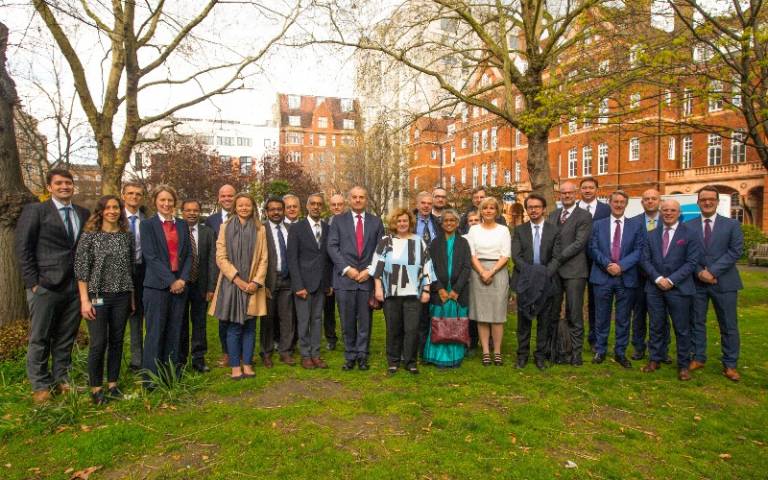Launch of the International Centre for Genomic Medicine in Neuromuscular Diseases
4 April 2019
The new International Centre for Genomic Medicine in Neuromuscular Diseases (ICGNMD) launched yesterday and will create a transcontinental genomics research partnership between the UK and centres across the world.

Led by Professor Michael Hanna (UCL Queen Square Institute of Neurology), the Centre's mission is to facilitate international genomics research focused on neuromuscular diseases between the UK and low-to-middle-income countries.
Neuromuscular diseases such as muscular dystrophies and motor neurone disease affect at least 17m people worldwide, causing premature death or lifelong disability.
As most neuromuscular diseases are single-gene disorders, understanding the genetic pathways and doing genetic testing is vital to the development of new treatments. Current treatments are contingent on precise diagnoses for personalised treatments plans, and although some interventions are simple and inexpensive, they rely on a precise diagnosis being made.
Many neuromuscular diseases are also quite rare, meaning that there is a need for large populations for genetic research. With an initial focus on India, Brazil, South Africa, Zambia and Turkey, the ICGNMD will access genetic data from a population of over 1.5 billion.
The Centre will establish a core international bioinformatics platform, pipeline and cloud-based clinical and genetic database, to openly share phenotypic and genetic data and encourage other countries to join this collaborative programme.
One of the Centre’s goals is to discover newly-identified disease genes, as well as to further understanding of known genes, disease mechanisms, progression and variability.
Professor Michael Hanna, Director of the UCL Queen Square Institute of Neurology, says, “By creating a transcontinental research and capacity building partnership between the UK and excellent centres across the world, we hope to discover new disease genes, define the genetic variants in known neuromuscular genes and understand comparative genetic architecture in different populations.
“We will dramatically increase the number of patients with an accurate genetic diagnosis, build 'trial ready' cohorts and ultimately improve health outcomes for patients with this unmet health need drawn from a combined population of over 1.5 billion people.”
Whilst much genetic research tends to be focused on people of European origin, the ICGNMD will develop ethnically diverse cohorts, which should help improve genetic diagnoses of UK-based people of Indian, Brazilian, Turkish and South African descent.
The Centre, supported by the Medical Research Council, will also establish an international fellowship training programme.
Links
- International Centre for Genomic Medicine in Neuromuscular Diseases
- UCL Queen Square Institute of Neurology
- Professor Michael Hanna’s professional profile
Image
Credit: UCL Queen Square Institute of Neurology Medical Illustration
Media contact
Chris Lane
Tel: +44 20 7679 9222
E: chris.lane [at] ucl.ac.uk
 Close
Close

